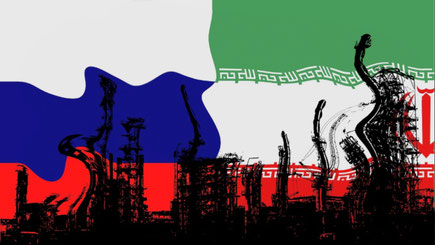
Oil, often referred to as "black gold," has long been a strategic commodity, essential for industrial economies and military power. The late 20th century witnessed a series of conflicts and wars driven by the quest for control over oil resources. The period from the 1970s through the early 2000s was marked by several prominent oil-motivated conflicts, highlighting the geopolitics and the relentless struggle for energy resources. However, recent developments in the global energy arena have shifted the motive for oil-ralated warfare from controlling oil resources to the less predictable outbursts of violence within declining oil economies and spillover of their internal crises into regional conflicts and general instability. Hence, the 2020s will likely be characterized by dramatic geopolitical reshuffles related with the decline of major oil exporting economies who refuse to aknowledge the energy transition.
The 1973 oil crisis, driven by Arab nations and the Organization of Arab Petroleum Exporting Countries (OAPEC), led to an oil embargo, resulting in a significant spike in oil prices and highlighting the power of oil-producing nations. The Iran-Iraq War from 1980 to 1988 had territorial and religious disputes at its core but was undeniably fueled by the desire to control valuable oil resources, with oil revenue critical to both nations. Moreover, the First Gulf War in 1990, initiated by Iraq's invasion of Kuwait, was heavily influenced by oil interests. The international response, led by the United States, aimed to liberate Kuwait and secure the stability of oil supplies. It is also worth noting that the Second Gulf War, which toppled Saddam Hussein, had elements related to oil, as it aimed to reconfigure Iraq's political landscape and influence regional oil dynamics.
While the conflicts mentioned above were overtly oil-driven, it is essential to acknowledge that oil interests have also exerted a more subtle yet influential role in shaping international relations. The Middle East, housing a significant share of the world's proven oil reserves, has become a focal point of global politics, giving rise to proxy wars, alliances, and interventions by major world powers. Hence, the late 20th century witnessed a series of wars where oil played a central or significant role in shaping international dynamics, underlining the geopolitical importance of energy resources and their impact on global stability and security. The world's dependence on oil as a primary energy source made control over oil resources a matter of strategic importance, leading to conflicts in different parts of the world.
As we gaze into the future, the shift towards alternative energy sources and improved energy efficiency will likely reconfigure these geopolitical dynamics, potentially reducing the occurrence of oil-motivated conflicts. However, the economic decline of oil producing states is a highly distabilizing factor in this process. The decline of oil economies has already played a significant role in contributing to instability in Arab countries during the 2010s, particularly the Arab Spring and its subsequent aftermath, which some refer to as the "Arab Winter". Moreover, the decline in oil revenues complicated the ability of these countries to address critical social and economic issues, exacerbating existing grievances and increasing the potential for political instability. In some instances, such as in Libya and Syria, these grievances evolved into protracted conflicts and civil wars. The decline of oil-dependent Arab economies during that decade has already revealed the vulnerabilities of nations heavily reliant on oil revenues.
As for the major oil and gas-producing world leaders that resist acknowledging the global transition towards clean energy, including Russia, Iran, and Qatar, they face their own set of challenges. As the world pivots toward renewables and reduced fossil fuel consumption, these nations face an economic and social decline due to their overreliance on oil and gas exports. Their economies are highly susceptible to market fluctuations and are vulnerable to the eventual decline in demand for hydrocarbons. In response to this threat on their economic stability, these nations may become increasingly assertive in their actions to maintain control over energy resources and markets. This could involve aggressive foreign policies, including support for regional proxies, attempts to influence global energy prices, and potentially engaging in conflicts to secure access to dwindling markets.
Interested in getting more information on global energy insights? Please contact us.







